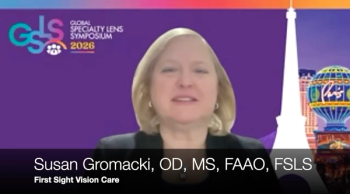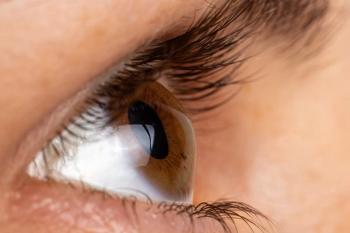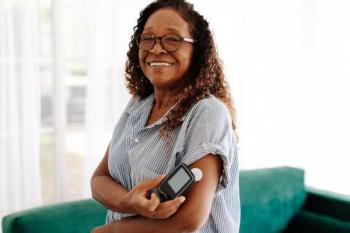
Treating diabetic patients in low vision clinics
Parres Wright, OD, FAAO, shares highlights from her discussion, "Diabetes and low vision rehabilitation," which she presented during AAOpt 2022.
Parres Wright, OD, FAAO, assistant professor at Midwestern University Chicago College of Optometry, speaks with Optometry Times®' Kassi Jackson on highlights from her discussion titled, "Diabetes and low vision rehabilitation," which she presented during the 2022 American Academy of Optometry (AAOpt) annual meeting in San Diego.
Editor's note: This transcript has been edited for clarity.
Jackson:
Hi, everyone. I'm Kassi Jackson with Optometry Times, and I'm joined today by Dr. Parres Wright, assistant professor at Midwestern University Chicago College of Optometry. She's here to share highlights from her discussion titled, "Diabetes and low vision rehabilitation," which she is presenting during the 2022 American Academy of Optometry meeting this year in San Diego. Thank you for being here, Dr. Wright.
Wright:
Thank you for having me. I'm so excited.
Jackson:
So will you please share with us some key takeaways from this presentation?
Wright:
Yes. So this presentation will highlight the effect of diabetes on the eyes and the vision loss that happens in diabetes. There are multiple types of vision loss that can happen, and that can include both central vision loss and peripheral vision loss. And because of that, oftentimes, we see these patients in low vision clinics. And so the lecture will highlight different low vision devices and different low vision interventions that can help patients who've lost their vision due to diabetes.
Jackson:
Great. And why is it so important for optometrists to address?
Wright:
Well, as we all know, the number of diabetics is going up in our population, and people are being diagnosed younger and younger. We're all becoming a little more obese, I think. Right? And so that is contributing to the diabetes epidemic. And so optometrists are seeing more and more diabetic patients.
And so we will be seeing these patients that have had unmanaged, uncontrolled diabetes. And we'll see the ocular effects of that. And so knowing that these patients can benefit from low vision intervention is important, and getting them to the right place so that they're able to live full lives is important.
Jackson:
Yeah, great. And expanding on that, what does this mean for patient care?
Wright:
It means that anyone who sits in this lecture even if you're not a low vision specialist, like myself, you can implement some basic low vision things, even if it's something as simple as a magnifier in order to help your patients.
Newsletter
Want more insights like this? Subscribe to Optometry Times and get clinical pearls and practice tips delivered straight to your inbox.













































